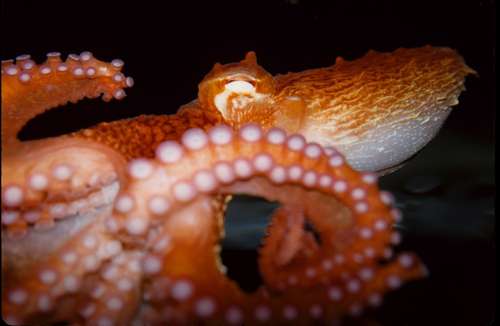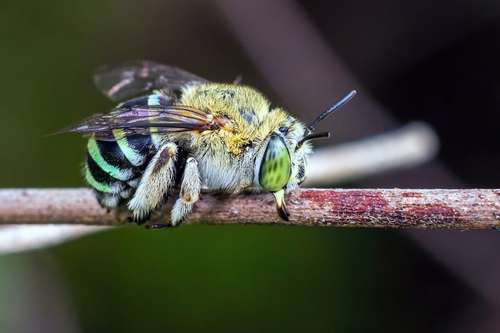Have you ever marveled at the mysterious world beneath the waves? It turns out that our eight-armed friends are not only fascinating but incredibly skilled. Recent octopus research has uncovered that these cephalopods hardly favor one arm over the other when carrying out their myriad tasks. Instead, they exhibit a level of ambidexterity that makes them true marvels of nature.
In our everyday lives, we sometimes struggle to choose which hand to use for specific chores. But when it comes to octopus limbs, it's a whole new ball game. Imagine having the freedom to use any one of your eight arms for any task you need to perform. That’s what makes octopus behavior so intriguing and, frankly, a bit mind-blowing!
The Alluring World of Octopus Skills
The ocean is full of surprises, and the octopus stands out as one of its most enigmatic residents. A new octopus study conducted by marine biologists has shed light on the extraordinary abilities of octopus arms. These creatures have been observed using all eight limbs with equal proficiency, indicating that their motor skills are finely tuned for a variety of tasks.
Picture an underwater ballet where every arm plays its part flawlessly. Each tentacle acts like a multi-tool—whether it’s for opening a conch shell or escaping from a predator. Researchers in marine biology have found that octopus limbs are not just appendages but independent operatives with the ability to communicate with each other through a network of nerves. This decentralized control system is one of nature's best-kept secrets.
Marine animals like the octopus truly redefine what it means to be adaptable in the deep blue. The surprising adaptability of these creatures makes one wonder: could we learn a thing or two from them about multitasking and versatility in our daily lives?
Decoding the Cephalopod Intelligence
The octopus is renowned for its intelligence, but its unique anatomy sets it apart. This section dives into the fascinating interplay between octopus anatomy and its impressive skills. The study shows that there is no preferred limb, suggesting that each arm is unique yet functionally identical to the others.
The cephalopod's nervous system is unlike any other in the animal kingdom. The majority of the neurons are located in the arms rather than its central brain. This structure empowers each arm to operate independently, offering a parallel processing system that serves as a backbone for its complex behavior.
It’s like having a mini-brain in each limb! Not every creature can boast such versatility, and this is one major reason why octopus research continues to captivate scientists and enthusiasts alike. The study further emphasizes the refined coordination when these arms work in tandem, a phenomenon often compared to a well-rehearsed symphony.
Isn't it fascinating to think that nature has mastered the art of decentralized intelligence long before we even dreamed of it in our technological designs?
Arm to Arm: The Power of Eight
Imagine having eight hands to accomplish your daily chores; that's precisely what these marine animals enjoy. The refined octopus limbs allow them to perform tasks that range from precise manipulations to broad sweeping movements. They are not just muscle and suction cups—they are robust tools optimized for survival in the ocean's dynamic environment.
Scientists suggest that the equality in octopus limbs might be an evolutionary advantage, allowing these creatures to react quickly in unpredictable situations. When a predator approaches or when a novel object appears in their environment, every arm is ready to execute a different part of the escape or exploration process simultaneously.
This remarkable ability has led to comparisons with modern robotics where multi-tasking and decentralized control are desired features. Picture your smartphone running multiple apps at once, each operating independently yet contributing to a larger task. This is exactly what happens in the fluid, dynamic underwater world.
Modern octopus research has opened up new avenues to investigate the connection between octopus intelligence and the potential for bio-inspired robotics. With each octopus limb perfectly tuned to perform a specific action while cooperating with the rest, they offer insights into how nature might solve complex multitasking puzzles.
Implications for Marine Biology and Beyond
Diving deeper into the study, we find that these insights into octopus behavior carry implications that span far beyond the ocean. Marine biologists have noted that understanding the decentralized nervous system of these underwater creatures could revolutionize how we think about robotics and artificial intelligence. This newfound understanding is not just academic—it holds the potential to inform practical designs in fields far removed from the marine environment.
Such discoveries also stir up a lot of excitement among researchers who are keen on understanding how evolution shapes adaptation. The octopus, with its equal use of eight arms, teaches us that flexibility and distributed intelligence are powerful traits. These traits are particularly relevant in today's rapidly changing world where adaptability is key.
Marine research offers an intriguing parallel to our everyday problem-solving. Like an octopus that uses all its limbs adeptly, we too must learn to balance various tasks simultaneously. This analogical insight reminds us of the value of versatility and innovation in facing challenges, whether they are in the depths of the ocean or in the complexity of modern life.
The study also emphasizes the need to preserve ocean life and marine ecosystems. After all, the unique features of these underwater creatures may hold the keys to future technological advancements, making their conservation all the more critical.
Unraveling the Mysteries of Ocean Life
Have you ever pondered the hidden talents of the creatures in our oceans? Octopus abilities, in particular, not only demonstrate raw power and flexibility but also an incredible level of intelligence that frequently defies our expectations. The findings from this octopus study prompt us to appreciate the brilliant simplicity and complexity of nature all at once.
With every twist and turn of their limbs, octopuses remind us that nature's design is both efficient and elegant. Exploiting the full potential of all eight arms, these creatures have evolved traits that allow for rapid and effective environmental interaction. Their prowess in underwater manipulation is unmatched, making them a key subject for those studying marine animals.
We see in the octopus an embodiment of perfect, adaptive design. Through evolution, these beings have learned to overcome challenges in ways that are both surprising and innovative. And just like in our daily lives when we improvise to meet unexpected hurdles, the octopus uses its octopus skills to thrive in a complex, ever-changing underwater environment.
Final Thoughts on a Multi-Armed Marvel
In wrapping up this exploration into the world of octopus limbs, it’s clear that these creatures are much more than just fascinating underwater animals—they are living proof of evolution's creative genius. Their eight arms symbolize not only physical versatility but also a brain design that prioritizes decentralized control, making them extraordinary in both function and form.
The journey of uncovering octopus behavior and abilities is still in its early chapters, but every new discovery brings a thrilling mix of scientific insight and wonder. As we continue to study these mesmerizing cephalopods, one thing remains abundantly clear: when it comes to natural design, the octopus is a true master of innovation. So next time you think about the wonders of ocean life, remember that nature often holds the answers in the unlikeliest of places, sometimes in the twist and turn of eight equally capable arms.




